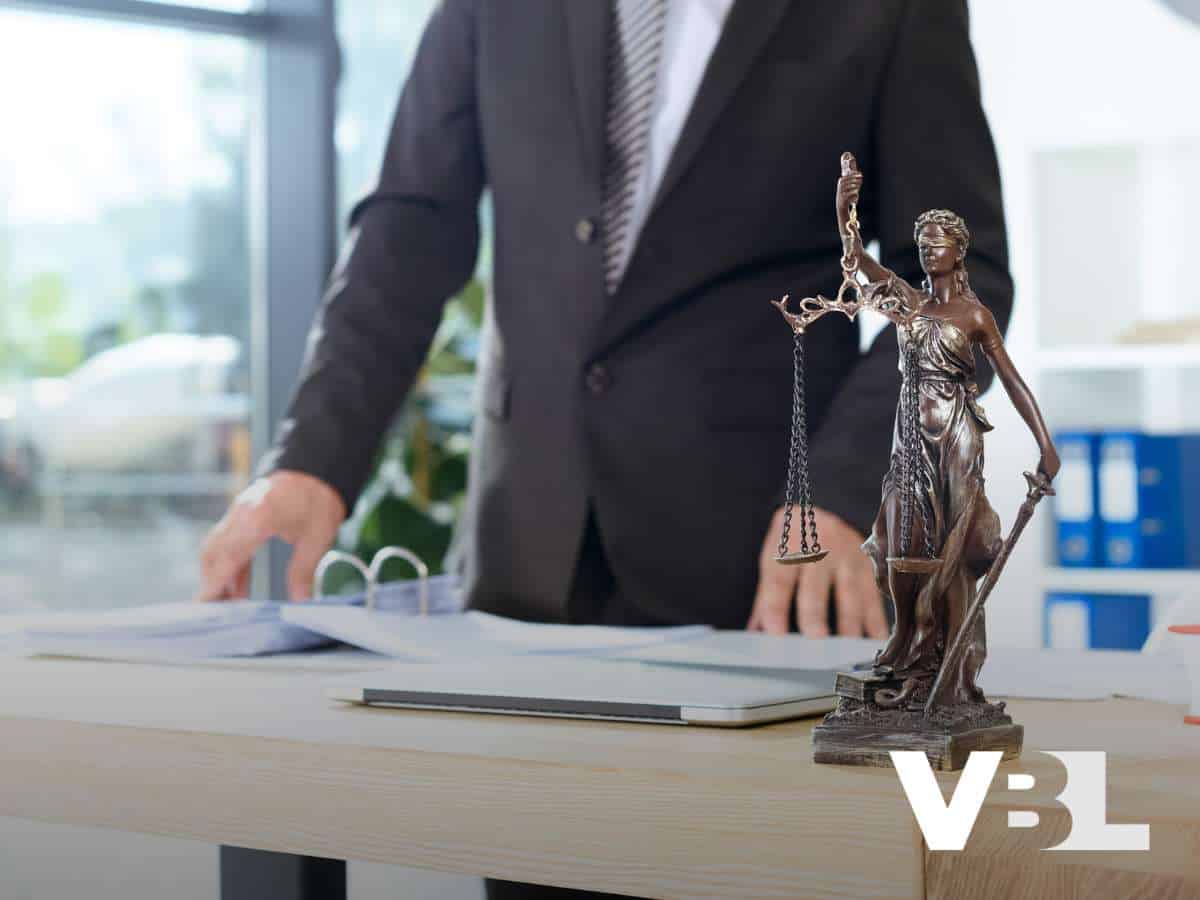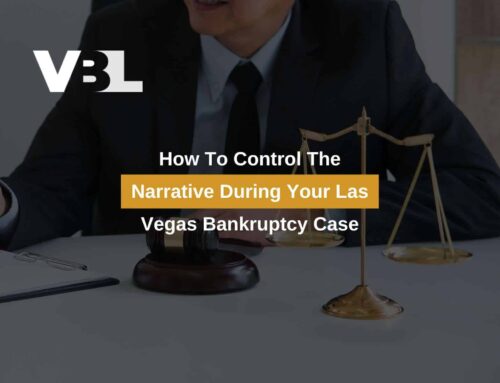Is The United States Headed For Another Recession?
At the end of a long day, it can be difficult to muster up the energy for anything besides scrolling through your phone. And lately, it feels like the only type of scrolling that is an option is doomscrolling. With headlines about massive government layoffs, tariffs sending high prices even higher, trade wars with our former allies, and the possibility of a third World War, compulsively scrolling the internet for negative information comes naturally lately. But not every headline should be ignored for the sake of mental health. Financial experts read these news stories, analyze data, and have come to the conclusion that the United States is likely headed for another recession. Preparing yourself financially is the best way to protect your assets during these types of tough economic times, and hopefully avoiding bankruptcy. But with how difficult it is to merely survive right now, bankruptcy will become inevitable for thousands of American families as we head into recession.
A recession is defined as “a prolonged period of negative economic growth in a country.” There are four phases in the economic cycle, and typically a country must reach the trough, or the valley of the recession, before it can begin to peak again. The pandemic was a time of negative economic growth, but because it was confined to a few-month period, it was not declared a recession. Some of the signs of a recession include:
- Lost jobs and higher levels of unemployment
- Deteriorating stock market results
- Declining profits and failing businesses
- Reduced consumer spending
- Higher borrowing costs for consumers and businesses
A country isn’t considered to be in a recession just because a few news outlets reported it. The National Bureau of Economic Research is a private nonprofit organization with the authority to designate where our country is in the business cycle. The Bureau’s committee looks at depth, diffusion, and duration when determining whether or not the country is in a recession. The country could very well already be in a recession by the time it is declared by the Bureau.
A wide variety of businesses and individuals will struggle if the United States is truly on its way toward another recession. In many families, that will manifest as debt that can’t be repaid without some outside intervention. Bankruptcy clears burdensome debt and creates an impenetrable barrier between the debtor and their creditors. If you are considering filing for bankruptcy in Las Vegas, you deserve quality representation with payment options that allow you to file your petition without breaking the bank. Schedule your free consultation with our Zero Down Las Vegas bankruptcy firm today by clicking here or calling 702-370-0155.

What Happens To Debt In Bankruptcy?
There are a few factors that can affect what will happen to your debt if you declare bankruptcy. The best way to explain these differences is by starting with the chapter of bankruptcy filed. The most common form of consumer bankruptcy in Las Vegas is chapter 7 bankruptcy, followed by chapter 13 bankruptcy. A chapter 7 bankruptcy will look far different from a chapter 13 case, starting with the lifespan- a chapter 7 case should be completed within 3-6 months, while a chapter 13 case will always last 3 or 5 years. During those years, a chapter 13 plan will pay off bankruptcy fees, secured debts, and priority debts. Depending on how much disposable income the debtor has, their unsecured non-priority debts will be paid off as much as possible, but will be cleared at the end of the plan if their mandatory debts have been repaid.
Filing for chapter 7 bankruptcy only clears those unsecured non-priority debts that could be cleared at the end of a chapter 13 plan. So if you primarily have unsecured non-priority debts like medical bills and credit cards, chapter 7 may be the more favorable form of bankruptcy for you. But if you have secured and priority debts that won’t be cleared in chapter 7, you should do your best to qualify for chapter 13 instead. There are income qualifications for both chapters that can make you ineligible to file. Review them with an experienced Las Vegas bankruptcy lawyer today by calling 702-370-0155.
Taking The First Steps To Prepare For Bankruptcy
All it takes is one missed car payment to trigger the repo man, or an illness or injury that temporarily puts you out of work, or any other unforeseen circumstance that could speed up the deadline of when your bankruptcy needs to be filed. If you take some basic steps that are universal to all bankruptcy filings in advance, you won’t be rushed if and when you need to file your petition. Some of the tasks you can complete during your bankruptcy preparation phase include:
- Taking your first credit counseling course: All bankruptcy debtors must complete two online courses to be granted a debt discharge. You can complete your first course up to 180 days before filing your bankruptcy petition. The second course must be completed within 60 days of attending your 341 Meeting of Creditors. Taking the course early can reduce the pressure you feel tying up loose ends during your filing.
- Gathering documents you are likely to need: This can be paystubs, tax returns, child support and alimony documents, account statements, and any other documents pertaining to your financial situation that the trustee may request to see throughout your case. Talk to your attorney if you are unsure which documents are relevant to your bankruptcy case.
- Staying up to date on payments that won’t be discharged in bankruptcy: If you know that you are going to be filing for bankruptcy in the coming weeks or months, now isn’t the time to pay off your credit cards and medical bills. But other debts aren’t going to disappear when you file for bankruptcy, so these are the payments you should prioritize before bankruptcy. Confirm your pre-bankruptcy debt repayments with your bankruptcy attorney during or after your initial consultation.
Stressed About How You’ll Fare In A Recession? Learn More About Bankruptcy Now With Your Free Consultation
If you’re in a line of business that relies on other people having enough money to spend excess funds, a recession will be damaging to your financial situation. This can be even more daunting if you already are in over your head with debt, interest payments, late fees, etc. Once you fall too far behind on your payments, your creditors may make efforts to collect like filing a lawsuit against you, repossessing your assets, and more. You can stop them in their tracks with the automatic stay, and clear the original obligation for which they are pursuing you with a debt discharge. But making mistakes in your bankruptcy- even starting with the choice between chapter 7 and chapter 13- can have disastrous consequences. The good news is that you don’t have to make this decision on your own. Our Las Vegas Zero Down Bankruptcy team can assess your situation, select the right chapter of bankruptcy given your circumstances, and provide you with a competitive quote for legal representation with post-filing payment options available. Get started today with your free consultation by phone by calling 702-370-0155.

Las Vegas Bankruptcy Lawyers
LAS VEGAS
7251 W Lake Mead BLVD #300
Las Vegas, NV89128
Office: 702-879-2499
Email: [email protected]
HENDERSON
1489 W Warm Springs Rd. Ste 110
Henderson, NV 89014
Email: [email protected]
Additional Information at:
Phoenix Bankruptcy Lawyer
Phoenix DUI Lawyer
Chandler Bankruptcy Lawyer
Vegas Zero Down Bankruptcy Attorney
Gilbert Bankruptcy Lawyers
Arizona Zero Down DUI
AZ Bankruptcy Lawyer
















